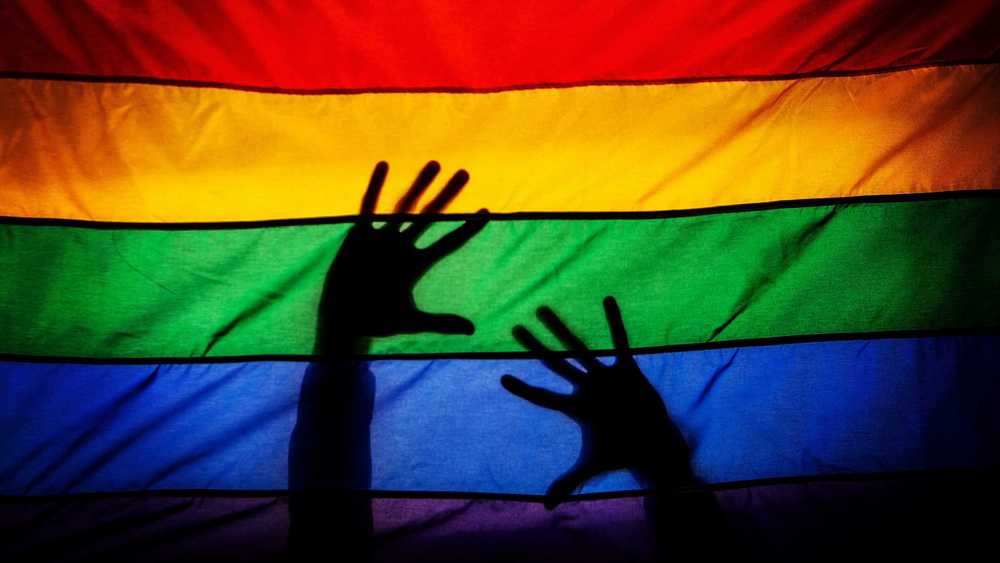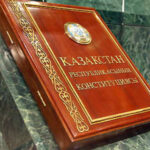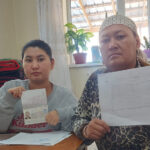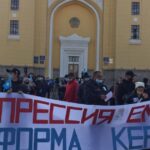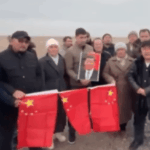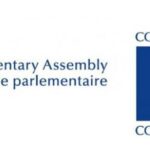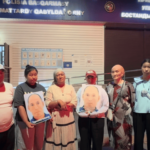On October 29, Kazakhstan’s lower chamber of parliament, the Mazhilis, adopted amendments banning what it calls “LGBT propaganda.” MP Irina Smirnova, who announced the decision, claimed the law does not target individuals with “non-traditional sexual orientations” but aims to prevent materials that could “shape such views” among children. The move has triggered strong reactions from activists and human rights organizations, who warn it institutionalizes discrimination under the guise of child protection.
A working group made up of members of parliament, NGO representatives, LGBT activists, and human rights experts was established to discuss the draft legislation. Critics, however, have argued that the process lacked transparency and that the outcome appeared predetermined. Moreover, LGBT activists have expressed that the decision of the initiative was already decided before they were able to participate in the meeting.
Petition by controversial organisation
The bill follows a petition launched by the Kazakhstan Parents’ Union titled “We Are Against Open and Concealed LGBT Propaganda in the Republic of Kazakhstan.” Published on the official E-Petition.kz portal, it gathered more than 50,000 signatures, making it eligible for review by the Ministry of Culture and Information.
The Union’s head, Bagila Baltabeva, argued that “Same-sex love is being openly forced on our children. (…) Young people openly spread information about and promote their unhealthy relationships (…) Traditional values are portrayed as relics of the past, a sign of backwardness.”
However, critics of the bill argue that legitimizing such rhetoric aligns Kazakhstan with broader anti-LGBT movements and threatens the country’s international image.
Feminita speaks out
In November 2025, the Kazakhstan International Bureau for Human Rights and Rule of Law (KIBHR) held a press meeting on behalf of Feminita, an organisation defending gender and sexual minority rights. The speakers warned that the law will deepen stigma and expose LGBT people to increased violence.
One of the speakers emphasized that the current debate was “not about protecting society, but about threatening it,” arguing that the idea of “LGBT propaganda” as a myth, explaining that “no one can be persuaded to be who they are by nature.”
According to the speaker, while media and culture cannot “turn someone LGBT,” but instead homophobia, hate speech, and aggression can be taught – attitudes that lead to real social harm.
They urged lawmakers to consider the hidden human cost, noting that even those promoting such legislation likely have LGBT friends or relatives forced to remain silent due to stigma.
Concluding their remarks, the speaker warned that if the law passes, Kazakhstan risks international isolation:
“No self-respecting global artist will come to perform in a country that so brutally violates human rights, especially those of LGBT people,” they said.
Human rights activists speak out against the law
Human rights defender Tatiana Chernobyl sharply criticized the initiative, calling it “a direct attempt to institutionalize hostility” toward the LGBT community. According to Chernobyl, the proposed amendments are not only unscientific but also contradict Kazakhstan’s constitutional and international human rights obligations.
She emphasized that the deputies behind the bill deny the existence of sexual orientation and gender identity as legitimate human characteristics, instead framing them as deviations from a so-called “norm.”
Legal expert Sarsen Aubakirov echoed these concerns, reminding lawmakers that: “the [Kazakhstani] Constitution guarantees equality before the law and prohibits any discrimination based on origin, social status, or other characteristics.” Therefore, if adopted, he argues, the law should be examined by the Constitutional Court for potential violations of fundamental rights.
Part of a broader tendency
The new measure is part of a broader pattern in restringing LGBT visibility and expression in Kazakhstan. Over recent years, lawmakers have repeatedly attempted to introduce similar bans on the so-called “promotion of nontraditional relations,” though earlier proposals were ultimately rejected.
Cultural censorship has also increased: former Minister of Culture and Information, Dauren Abaev, blocked the screening of the animated film Lightyear, citing “numerous requests” from concerned citizens due to same-sex representation. Such decisions reflect growing institutional pressure to suppress depictions of gender and sexual diversity in public life.
In January 2024, authorities shut down selftanu.kz, a site which provided resources to help young people navigate questions about sexual orientation and identity. Officials claimed that it violated child protection laws by posting content “harmful” content.
The closure risks further isolating LGBT youth, many of whom already face stigma, bullying, and family rejection. Experts warn that closing such spaces removes one of the few safe outlets available to queer youth in a conservative society.
Research showing prevention of suicide
Opponents of LGBT representation often label it as “propaganda,” but research shows visibility fosters resilience and can prevent suicide among young people. Studies indicate that media and online communities help marginalized youth cope with stress, develop self-acceptance, and build supportive networks. Restricting this access, researchers caution, can have life-threatening consequences.
At the press meeting, one speaker cited international evidence that similar laws in other countries have increased violence and psychological trauma among LGBT individuals. “Many queer people think about suicide at a young age,” they said. “For those who did not survive, we will never know their stories.”
Fostering Hate and Normalizing Discrimination
The rise of hate speech and disinformation in public discourse, often spread by conservative politicians or religious leaders, has normalized hostility toward LGBT youth in Kazakhstan. Campaigns against so-called “gender ideology” frame equality as a threat to traditional families, while portraying tolerance as moral decay. Even when avoiding explicit hate speech, this rhetoric encourages systemic discrimination and emboldens those who view LGBT people as outsiders.
As Chernobyl warned, Kazakhstan risks institutionalizing intolerance under the pretext of protecting children. Critics stress that genuine social protection lies not in censorship, but in ensuring dignity, equality, and freedom for all citizens.

